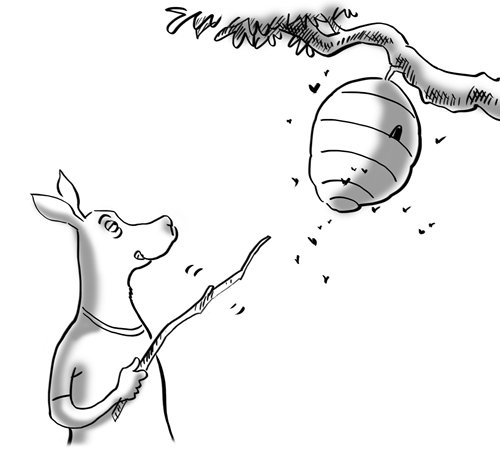
By Zhang Ye
During the tenures of former prime ministers Kevin Rudd and Julia Gillard, Australia saw the South China Sea issue as a dispute between China and related Southeast Asian countries, and adopted a relatively neutral and balanced policy. However, in recent years, with conflicts in the region growing, especially after the US conducted so-called freedom of navigation operations, Australia has changed its policy considerably. Its bigoted actions have jeopardized not only China's national interests, but also Australian long-term interests, bringing Canberra's structural contradictions and strategic dilemma to a worse level.
Kissing up to the US has led to an imbalance in Australian strategy and squeezed its strategic space. For the smaller medium countries sandwiched between major powers, it is proper and rational to balance their relationships between major powers to serve their own interests. But over the South China Sea issue, Australia always follows the US and challenges China's maritime sovereignty and interests. This will poison its relations with China, shake up foundation for its strategic balance between China and the US and reduce its independence of foreign policy. Once Sino-US relations are strained, Australia will have to choose between the two countries and fall into a deeper strategic plight.
Besides, excessive involvement in the South China Sea has increased Canberra's strategic burden, widened the gap between its limited prowess and its goal to become a middle power. Australia has held this goal for a long time and wants to have its position in international affairs. However, due to its small population and limited strength, Canberra hasn't stood out in global geopolitics.
Recently Australian Prime Minister Malcolm Turnbull said, "Australian people stand up." He emphasized the independence of Australia's national interests and diplomacy, and advocated the Indo-Pacific concept, trying to show Australia's important role in shaping regional security order. However, the huge gap between ideal and reality has produced many setbacks for Australia in implementing its foreign strategy. Australia uses the South China Sea issue to show its influence as a middle power, but too much interference in the waters will cost it enormous economic, diplomatic and military resources.
First, China won't allow Australia to take a free ride and meanwhile make provocations. Such provocations in the South China Sea may prompt China to adopt strong countermeasures which will seriously impact Australian economic development.
Increasing input in the South China Sea issue adds to the burden of Australia, exhausts its strength and derails its efforts to reach the goal of becoming a middle power.
Australia's actions that disturb the stability of the South China Sea and undermine regional countries' long-term interests will make the country more confused about whether it belongs to the East or the West.
About the South China Sea issue, Southeast Asian countries have contradictory attitudes to the nations outside the region including Australia. On the one hand, they want to use the power from outside the region to balance China. On the other, they are alert to the excessive presence of these nations that may threaten ASEAN's dominance. If Australian does not stop interfering in the South China Sea, it will undermine the peace and stability of the region and invite aversion from regional countries, making Australia more separate from Asian countries.
Fourth, Australia adopts a double standard on international arbitration and damages its national image on the international stage. Australia identifies itself as the protector of the world order, but it supported the Philippines in the so-called "South China Sea Arbitration." However, when Australia dealt with its own conflict with Timor-Leste over a sea border, it took a totally contrary stance and claimed all the results of the arbitration were meaningless and unacceptable.
Actually there is no conflict between Australia's goal and China's peaceful rise. Australia should realize changes in the current international strategic landscape and properly deal with China's development, not letting the South China Sea issue damage bilateral relations or become a tool for foreign forces to undermine regional stability. Australia has its own special position connecting the Indian Ocean and the Pacific Ocean, its culture integrating East and West and its role bridging communication between China and the US. It should take advantage of these characters to do more for the peace and stability of the South China Sea and the development of its relationship with China.
The author is a researcher at the Chinese Naval Research Institute in Beijing.













